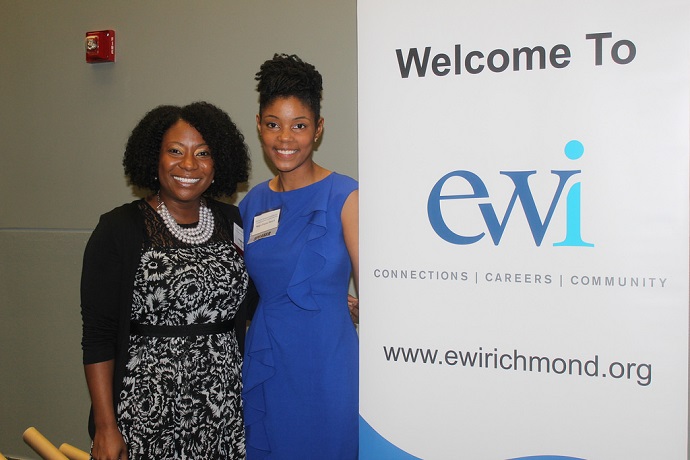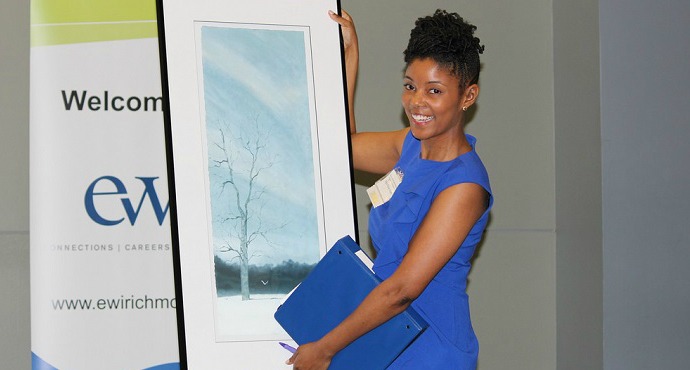Recently I was invited to address the Richmond Chapter of Executive Women International (EWI) at its annual scholarship dinner. I decided to use the opportunity to share some of my ideas about one of life’s most underutilized power tools: storytelling.
I thought a “What’s Your Story?” theme could speak compellingly to both the businesswomen of EWI and their young college-bound scholarship recipients. I mentioned Maya Angelou (storyteller extraordinaire) during my remarks, not knowing that she was on her deathbed and would pass away soon thereafter.
In retrospect, I can imagine no better way to honor her, a preeminent interpreter of the human experience, than encouraging people to tell their own stories.
All too often we rely on reasons and arguments, data and figures to make our points, when stories can be so much more powerful–both for examining our own lives and stances and for persuading others to more deeply consider theirs.
Stories let people feel who we are and what we believe. They are personal, memorable and instructive in ways that forge connections among us. By some magic, they shorten the distance among strangers faster than anything else.
Veteran activist and community organizer Marshall Ganz describes the phenomenon best: “A story communicates fear, hope, and anxiety, and because we can feel it, we get the moral not just as a concept, but as a teaching of our hearts.”

Here’s an excerpt from the EWI speech.
Consider these questions:
- What’s your title?
- What do you do?
- Why do you do what you do?
The first two questions seek information. The third question seeks stories.
What’s my title? Writer.
What do I do? Write advice columns, book reviews, how-to articles, personality profiles and essays for publications and my blog MayaSmart.com.
Why do I do what I do? Because my parents named me after poet and author Maya Angelou, and that cemented in my mind from an early age that writing and storytelling are a big deal. They are so important, in fact, that when you find a good writer/storyteller, you name your firstborn after her.
But that was just the beginning. As a child I read Maya Angelou’s autobiography, I Know Why the Caged Bird Sings. The book chronicles her childhood and two major traumas that prompted her to stop speaking at the age of seven. She refused to speak for five years, but developed a love for language by reading Langston Hughes, W. E. B. Du Bois, and Paul Lawrence Dunbar; Shakespeare, Dickens and Poe.
When Angelou was 12, a teacher, Mrs. Flowers, convinced her that reading silently was insufficient. That to be fully, powerfully experienced, the lines of poetry needed to be formed in the mouth, filled with breath, lifted with the tongue and spoken aloud.
The story of these two women–the writer who gave up her voice and the teacher who helped her recover it–informs, stirs and anchors my life to this day.
Mrs. Flowers convinced me that teaching people to appreciate the power of story is a noble endeavor. That’s probably why I’m talking to you about storytelling all these years later.
Hearing that story, don’t you feel like you know me a little better?
Stories encompass so much more than information, outcomes or characteristics. No matter how brief, stories go deep. They illuminate values, highlight stakes, engage empathy, lend insight. In addition to your “why you do what you do” story, craft some example or proof stories, what-if stories, cautionary stories, teaching stories and inspirational stories.
The next time you’re asked what you do, tell a story about how you wound up in the field and the impact your position allows you to have.
The next time you invite someone to join EWI, tell a story about one of the women you met here and how she’s made a difference in your life.
Storytelling is seriously a multi-purpose leadership tool. It can help you explain who you are and what you believe, introduce ideas and teach lessons, coach and inspire people. We’re social creatures and stories naturally capture our attention, spur our creativity and connect us in ways that data, numbers, statistics and analytics alone cannot.
So as you leave dinner today, remember to leave with more than a full stomach and some business cards. Try to share and receive some stories too.
Remember Lucille’s [EWI’s founder] story and her decades-long impact. A woman limited by the gender roles of her time strives to break out and DO more and BE more than expected. She enlists the support of other women. Their efforts are minimized and scoffed at by those who lack their vision. The women persist and together form a new association. With strength in their numbers (50 women from across the city of San Francisco showed up for the first meeting), they find the courage, counsel and confidence they need to advance. Their vision endures for decades, aiding thousands of women (and men) in the pursuit of greater inclusion and opportunity today.
More importantly, remember that you too are living in interesting times, plagued by complex questions related to inequality of educational and economic opportunity. Remember to assume your unique position in a larger narrative about bettering the world through relationships, education, work and service. Remember to tell yourself positive stories about your ambitions and abilities. Remember to share your story as a means of forging connections and lasting relationships.
So, again I ask, what’s your story? I speak on a variety of topics to community groups, businesses and professional organizations, but the underlying message is always personal empowerment through long-term commitment, relentless organization and courageous prioritization. Learn more.


